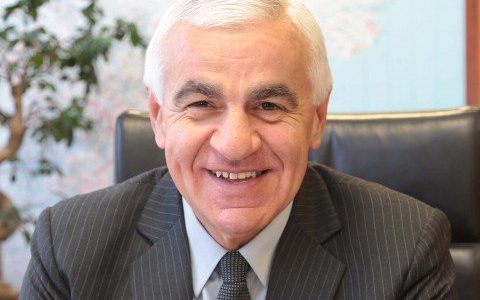Published on: August 10, 2017 at 8:22 AM
New Chair at Energy & Utilities Skills Partnership

Basil Scarsella, the Chief Executive Officer at UK Power Networks, is now the Chair at the Energy & Utilities Skills Partnership. He has succeeded the former E.ON UK Chief Executive Tony Cocker, who has held the role since the Skills Partnership’s formation last summer.
The Skills Partnership comprises 29 leading utility sector employers that have come together with a mission to “ensure a safe, skilled and sustainable workforce provides the essential services that our customers seek and meets the UK’s needs from the energy and utilities infrastructure.”
The energy and utilities sector needs to recruit 221,000 people over the next 10 years, with 20% of its workforce retiring over that same period. The sector has a critical role for the UK, delivering essential services to 65 million citizens each day and being responsible for 56% of the National Infrastructure Pipeline – a pipeline that underpins the UK economy. The Skills Partnership recognised the need for collective action, and has made the case to show that individual business cannot be left to manage workforce resilience alone.
Basil Scarsella said: ”I am delighted and honoured to take on this role, as I appreciate how important it is to develop a sustainable workforce in an industry that is essential to meet people’s everyday needs”.
“UK Power Networks has already trained more than 250 apprentices in the past five years to help fill the industry’s skills gap and we will continue to attract talented and promising new recruits over the coming months and years. Every company is only as good as its employees.”
Tony Cocker, who stepped down as Chief Executive at E.ON UK in April, added: “I’m proud to have served as Chair of the Energy & Utilities Skills Partnership, which has taken real strides forward is a relatively short space of time. Bringing so many leading sector employers together to publish the first-ever coherent strategic plan, the Workforce Renewal & Skills Strategy, is a major achievement and underscores the need for urgent action.
“The Skills Partnership has since engaged with stakeholders, sector employers of all sizes, education and training providers and elected officials to encourage urgent action to be taken. Basil Scarsella takes over as Chair at a time of increased recognition of the significant contribution the sector can make to increased growth and productivity. I’ve no doubts that he’ll lead the Skills Partnership to build on these early successes and I wish him the best of luck.”
Energy & Utility Skills, the expert voice on workforce issues across the sector, has been the driving force behind the creation of the Energy & Utilities Skills Partnership. Energy & Utility Skills Chief Executive Nick Ellins added: “The Skills Partnership has been formed at a key time for the UK, and is focused on ensuring a resilient, skilled and sustainable workforce for an energy & utilities sector that is pivotal to the UK. Tony Cocker has played a significant and valued part in building a strong partnership between all those involved and in securing tangible progress. This included releasing the first ever workforce renewal and skills strategy for the sector. We are delighted to have Basil Scarsella now take the leadership of the Chief Executive’s Council as we all drive the strategy and new initiatives forward”
“We recognise the scale of the challenge facing the sector in ensuring we have the skilled workforce needed to constantly deliver vital services, safely and efficiently. We will be collaborating with the four UK governments to achieve this and in managing the emerging challenges such as Brexit and the ever increasing competition for UK talent.”
In February 2017 the Skills Partnership published The Workforce Renewal and Skills Strategy, the first-ever coherent strategic plan for the continued delivery of essential energy and utility services to 65 million people every day across Scotland, Wales, England and Northern Ireland. The sector accounts for 56% of the National Infrastructure Delivery Plan and requires a skilled, competent and sustainable workforce
Key among the Skills Strategy’s findings is that 221,000 vacancies will be created across the entire energy and utilities sector during the next decade. This will be made up of 100,000 existing employees who will retire, 90,000 who will move to jobs outside the sector, and another 31,000 that will be required to fill newly-created roles. The Skills Strategy highlights the need for the entire sector to source applicants with varied and often high-level skills to keep up with evolving needs.
The Skills Partnership’s members are collaborating on a series of initiatives to increase sector attractiveness and recruitment, maximise investment in skills and take a targeted action to address skills gaps and shortages.